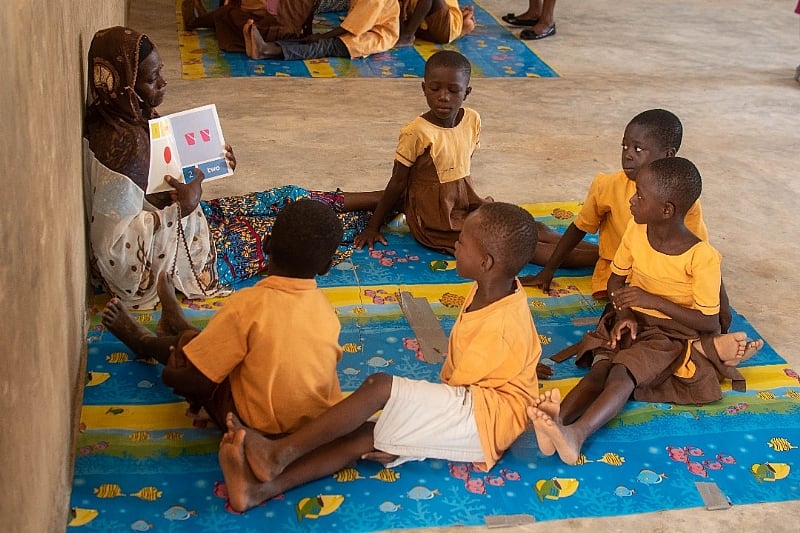The Ghana Education Service (GES) is poised to implement a nationwide expansion of its highly successful GES-Lively Minds kindergarten programme. This innovative initiative, currently operating in 64 districts across eight regions in northern Ghana, has demonstrably improved school enrolment and retention rates, while simultaneously fostering the cognitive, emotional, and physical development of young children. The programme’s success has garnered international attention, with countries like Ethiopia, Burundi, Uganda, and The Gambia studying the Ghanaian model for potential adoption within their own educational systems. This expansion signifies a significant step towards ensuring equitable access to quality early childhood education for all Ghanaian children and solidifies Ghana’s position as a leader in early childhood development in Africa.
The GES-Lively Minds programme distinguishes itself through its multi-faceted approach, integrating play-based learning with active parental engagement to create a holistic and supportive learning environment that extends from the classroom to the home. This comprehensive strategy involves three core components: Play Schemes led by trained mothers, monthly Parenting Courses, and the active involvement of Kindergarten Teachers. Mothers within the community are trained to facilitate engaging play sessions for small groups of children aged three to six, incorporating educational games, storytelling, and physical activities. Simultaneously, kindergarten teachers oversee these play sessions and conduct parenting workshops, providing guidance on home-based care, nutrition, and creating stimulating learning environments at home. This collaborative approach strengthens the link between home and school, ensuring a consistent and enriching learning experience for the child.
The programme’s effectiveness is rooted in its targeted approach to addressing a critical gap in early childhood development: parental engagement. A national study revealed a concerningly low rate of parental involvement in early learning play, with only 13% of Ghanaian parents actively engaging in such activities with their children. The GES-Lively Minds programme directly tackles this issue by empowering mothers to become active participants in their children’s education. By equipping mothers with the skills and knowledge to lead play-based learning activities, the programme not only enhances the children’s learning experience but also fosters stronger parent-child bonds and creates a more supportive home learning environment. This emphasis on parental involvement is a key factor in the programme’s success and represents a significant stride towards creating a more nurturing and stimulating learning ecosystem for young children.
The programme’s impact is evident in the transformative changes observed in participating communities. Schools have reported significant increases in kindergarten enrolment and retention rates, a testament to the programme’s ability to engage children and foster a love for learning. Furthermore, children who have participated in the play schemes demonstrate marked improvements in academic performance, highlighting the effectiveness of the play-based learning methodology. The programme has also had a profound impact on participating mothers, who report gaining valuable skills in time management, nutrition, and child development. This positive feedback underscores the programme’s holistic approach, which not only benefits children but also empowers mothers and strengthens families.
The decision to expand the programme nationwide follows rigorous testing and evaluation. A Randomized Controlled Trial conducted by the Institute for Fiscal Studies (UK) and Innovations for Poverty Action (IPA Ghana) demonstrated that children enrolled in the programme achieved learning gains equivalent to an extra year of schooling. These compelling results, combined with the programme’s demonstrated success in increasing enrolment, retention, and parental engagement, led to the Ministry of Education’s full adoption of the programme in 2019 for implementation across eight regions in northern Ghana. This initial rollout paved the way for the current national expansion, demonstrating the programme’s scalability and its potential to transform early childhood education across the country.
The GES-Lively Minds programme is not only effective but also cost-effective and sustainable. Its design leverages existing GES structures, utilizing local kindergarten teachers, district education officers, and regional directors for programme delivery and accountability. This integrated approach ensures efficient resource allocation and promotes local ownership, contributing to the programme’s long-term sustainability. The programme’s funding is secured through a consortium of international partners, including USAID, UNICEF, Global Innovation Fund, Grand Challenges Canada, the French Innovation Fund, and ELMA Philanthropies, further demonstrating the global recognition of its innovative approach and potential impact. The national rollout of the GES-Lively Minds programme represents a significant investment in Ghana’s future, promising to equip a generation of children with the foundational skills and knowledge necessary to thrive in school and beyond.


